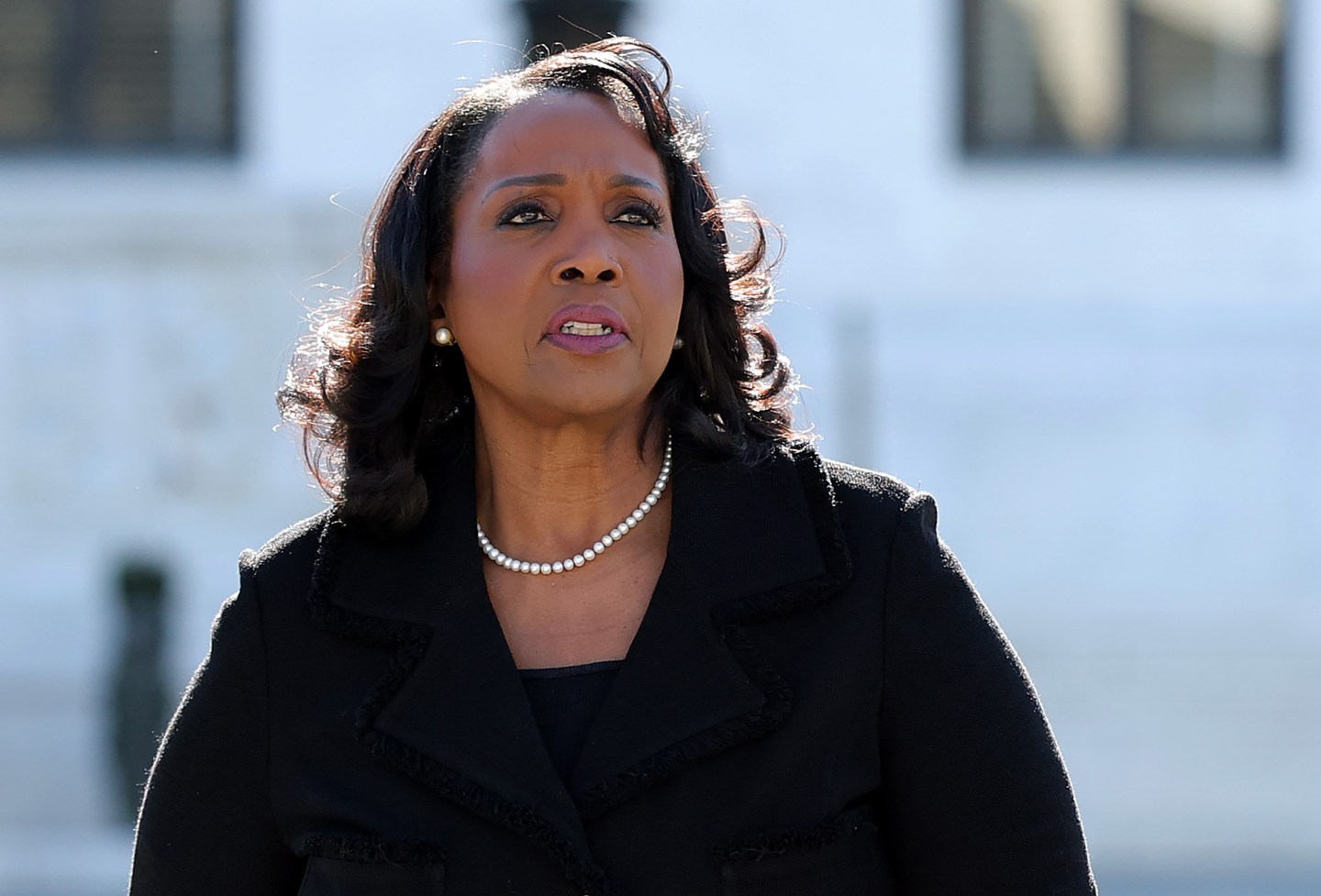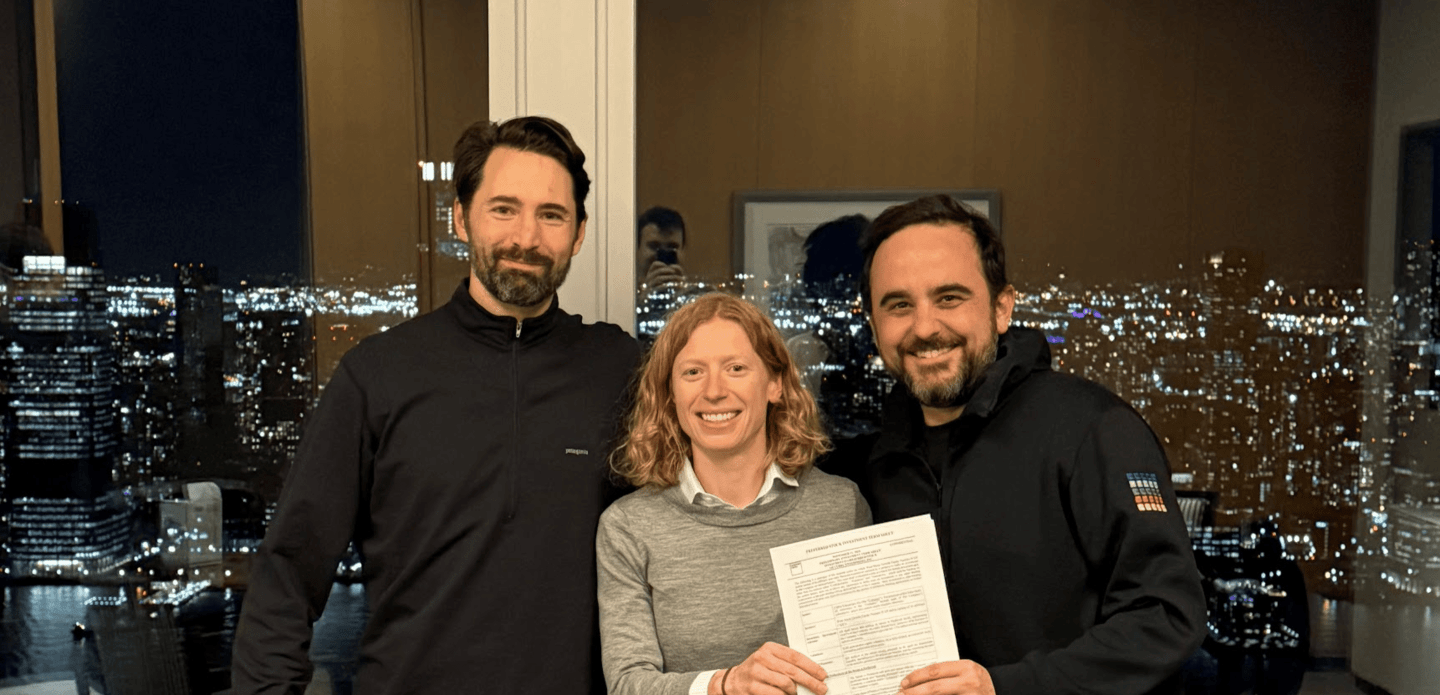As is the case with any great consumer brand, it’s difficult to completely explain the power of Skims.
But as a millennial woman, I can tell you that the grip is there. One of my best friends and I not only actively pay attention to Skims collaborations and drops, but send links back and forth in real-time. We’re deciding not if we’re buying something, but what. And on my 30th birthday, I told everyone who would listen: All I want is to sit on the beach and wear a sweatsuit Kim Kardashian made.
The best I can do to explain the essence of what makes Skims so impressive is this: It’s a triumph of aspirational marketing (cue, for example, the Dolce&Gabbana collaboration) and sleek accessibility in pricing and sizing. On the basis of its allure, I loved seeing the news drop yesterday that Skims raised $225 million at a $5 billion valuation. Goldman Sachs Alternatives led the round, and the company said that by the end of 2025, it will be on track to surpass $1 billion in net sales.
“Skims speaks to the power of a consumer product that resonates with a lot of people,” said Shamin Walsh, BAM Ventures managing director, via email. “This is entirely different from the old direct-to-consumer days where they’re buying revenue. Skims has clearly cracked a formula. If they are profitable and producing that much revenue, then it actually seems like a reasonable multiple based on the strength of the brand and the way they’re expanding.”
Outside of Skims, good news in the consumer business was, for a while, hard to come by. The DTC boom led to companies like Glossier snagging soaring valuations they couldn’t live up to, and it became clear that venture-backed consumer businesses couldn’t play by software rules. So, VCs and LPs pushed aside consumer deals for a while. (Silicon Valley Bank analysis shows that consumer-focused VC funds closed $65 billion in 2021, and by 2024 hit only $9 billion, a seven-year bottom.) But if you ask Michael Duda, managing partner at Bullish, consumer never died at all.
“Consumer never went away,” said Duda. “Consumer’s a big, honking, huge TAM to say the very least. I think narratives have shifted to decline, and even loss of respect. But if your fund size is appropriate, consumer will be back. And I get it, it became really hard for investors who don’t have the background. If you’re a general investor, consumer can be really hard to measure.”
The venture math on consumer has its complications: It’s a highly-competitive space filled with high customer acquisition costs in the early years, and the magic dust of taste-following and making. At the same time, the huge market math is undeniable at the macro level—as Duda points out, “68% of the U.S. Economy is powered by consumer spending” and that “it’s a $19.8 trillion category that just became too boring for some investors.”
“There’s a reason why the largest companies in the world are consumer companies,” added BAM’s Walsh. “When something hits a powerful level of volume, especially when it’s a product that’s part of habitual behavior, such as underwear, skincare, and beverages, it’s like there’s a crazy snowball effect that takes brands to the next level.”
There have been some undeniably killer consumer exits this year—Hershey’s $750 million acquisition of organic popcorn maker LesserEvil, PepsiCo’s $1.95 billion acquisition of bright soda brand Poppi, and e.l.f. Beauty’s $1 billion acquisition of Hailey Bieber’s Rhode. (Rhode added about $52 million—roughly 17%—to its new parent’s Q2 2026 net sales, on extremely efficient marketing spending and good margins.)
All these exits are by all accounts well-run businesses that are exceedingly on-trend—for now. One reality of consumer is that it’s always a moving target, not just because tastes change, but because consumers themselves are often brand-loyalty flexible. Which is why running a highly-efficient business in the most traditional sense, is essential to success.
“82% of U.S. Consumers are up to switching out brands,” said Duda. “We’re becoming less and less brand loyal. The day that consumers get rational, I’m probably out of a job! But we don’t see that changing anytime soon. The narratives will shift from time to time, but the opportunity is and always will be there.”
The willingness of consumers to switch out brands may present challenges, and there are massive opportunities for those who can find that loyalty (rare though it may be). Because there’s one thing I’m confident about: Skims and I are in it for the long haul.
See you tomorrow,
Allie Garfinkle
X: @agarfinks
Email: [email protected]
Submit a deal for the Term Sheet newsletter here.
Joey Abrams curated the deals section of today’s newsletter. Subscribe here.
Venture Deals
- d-Matrix, a Santa Clara, Calif.-based developer of a data center AI inference platform, raised $275 million in Series C funding. A consortium of investors including BullhoundCapital, Triatomic Capital, and Temasek led the round and were joined by others.
- SKIMS, a Los Angeles, Calif.-based shapewear company, raised $225 million in funding. Goldman Sachs Alternatives led the round and was joined by BDT & MSD Partners.
- Beacon Biosignals, a Boston, Mass.-based AI-powered brain health company, raised $86 million in Series B funding from Innovia, Google Ventures, Nexus NeuroTech Ventures, and others.
- Sweet Security, a Tel Aviv, Israel-based runtime CNAPP and AI security solutions platform, raised $75 million in Series B funding. Evolution Equity Partners led the round and was joined by Munich Re Ventures, Glilot Capital Partners, and others.
- GC AI, a San Francisco-based AI platform for in-house legal teams, raised $60 million in Series B funding. Scale Venture Partners and Northzone led the round and were joined by Sound Ventures, Aglaé Ventures, and others.
- Tavus, a San Francisco-based developer of AI companions designed to handle tasks proactively and interpret human body language, raised $40 million in Series B funding. CRV led the round and was joined by Scale Venture Partners, Sequoia Capital, Y Combinator, HubSpot Ventures, and Flex Capital.
- Code Metal, a Boston, Mass.-based verifiable code translation platform for mission critical industries, raised $36.5 million in Series A funding. Accel led the round and was joined by RTX Ventures, Bosch Ventures, and others.
- Attentive.ai, a Wilmington, Del.-based developer of AI-powered takeoff software for field service and construction companies, raised $30.5 million in Series B funding. Insight Partners led the round and was joined by Vertex Ventures, Tenacity Ventures, and InfoEdge Venture Fund.
- Arrived, a Seattle, Wash.-based platform for fractional real estate investing, raised $27 million in funding. Neo led the round and was joined by Forerunner Ventures, Bezos Expeditions, Core, and others.
- Evidium, a San Francisco, Calif.-based health care AI company, raised $22 million in Series A funding. Health2047 and WGG Partners led the round and were joined by Interwoven Ventures and Mindset Ventures.
- Humanix, a San Francisco-based cybersecurity platform designed to detect cyber threats preying on employees, raised $18 million across Series A and seed funding. Acrew Capital led the Series A round and BoldStart Ventures led the seed round.
- The Snow League, a New York City-based winter sports league, raised $15 million in funding from 359 Capital, BITKRAFT Ventures, Wise Ventures, and others.
- Joy, a San Francisco-based platform that connects parents with parenting experts, raised $14 million in Series A funding. Forerunner Ventures and Raga Partners led the round and were joined by Magnify Ventures, Ingeborg Investments, and others.
- Modulight Biotherapeutics, a Boston, Mass.-based developer of medicines for people with neurological disorders, raised $12.2 million in seed funding. Jibe Ventures and LocalGlobe led the round and were joined by Nexus Neurotech Ventures, RedSeed VC, Secret Chord Ventures, and others.
- Deductive AI, a Mountain View, Calif.-based AI-powered root cause analysis and resolution platform, raised $7.5 million in seed funding. CRV led the round and was joined by Databricks Ventures, Thomvest Ventures, and PrimeSet.
- District Cover, a Nashville, Tenn.-based insurance agency focused on covering small businesses in underserved urban communities, raised $6 million in funding. IA Capital led the round and was joined by Mosaic, Impact America Fund, and existing investors.
- Dryft, a San Francisco-based developer of an AI platform designed to automate human decisions in manufacturing operations, raised $5 million in seed funding. General Catalyst led the round and was joined by Neo, Sandberg Bernthal Venture Partners, and angel investors.
- Adclear, a London, U.K.-based AI-powered platform designed for financial promotions compliance, raised £2.1 million ($2.7 million) in seed funding. Outward VC led the round and was joined by AFG Partners, Tenity, and others.
Private Equity
- Clearlake Capital Group agreed to acquire Pathway Capital Management, an Irvine, Calif.-based private market solutions platform. Financial terms were not disclosed.
- Corsica Technologies, backed by Inverness Graham, acquired AccountabiliT, a Scottsdale, Ariz.-based managed service provider. Financial terms were not disclosed.
- Harbor Global, a portfolio company of BayPine, acquired Encoretech, a New York City-based technology training firm for the legal sector. Financial terms were not disclosed.
- Manna Tree acquired a minority stake in Plant People, an Austin, Texas-based gummy supplement brand. Financial terms were not disclosed.
Other
- Stingray Group agreed to acquire TuneIn Holdings, a San Francisco-based live audio streaming and ad monetization platform, for up to $175 million.
People
- Cowboy Ventures, a Palo Alto, Calif.-based venture capital firm, hired Donna Boyer as a venture partner. Previously, she was with WeightWatchers.
- Great Hill Partners, a Boston, Mass. And London, U.K.-based private equity firm, hired Phil Galati as a growth partner. He most recently served as president and CEO of Accelerate Learning.
- Khosla Ventures, a Menlo Park, Calif.-based venture capital firm, hired Adrian Nicholas Radu as a partner. Previously, he was with Lightspeed.
- Vesper Company, a New York City-based private investment firm, hired Ravdeep Chanana as a partner on the company’s investment team. Previously, he was with Gemspring Capital.













